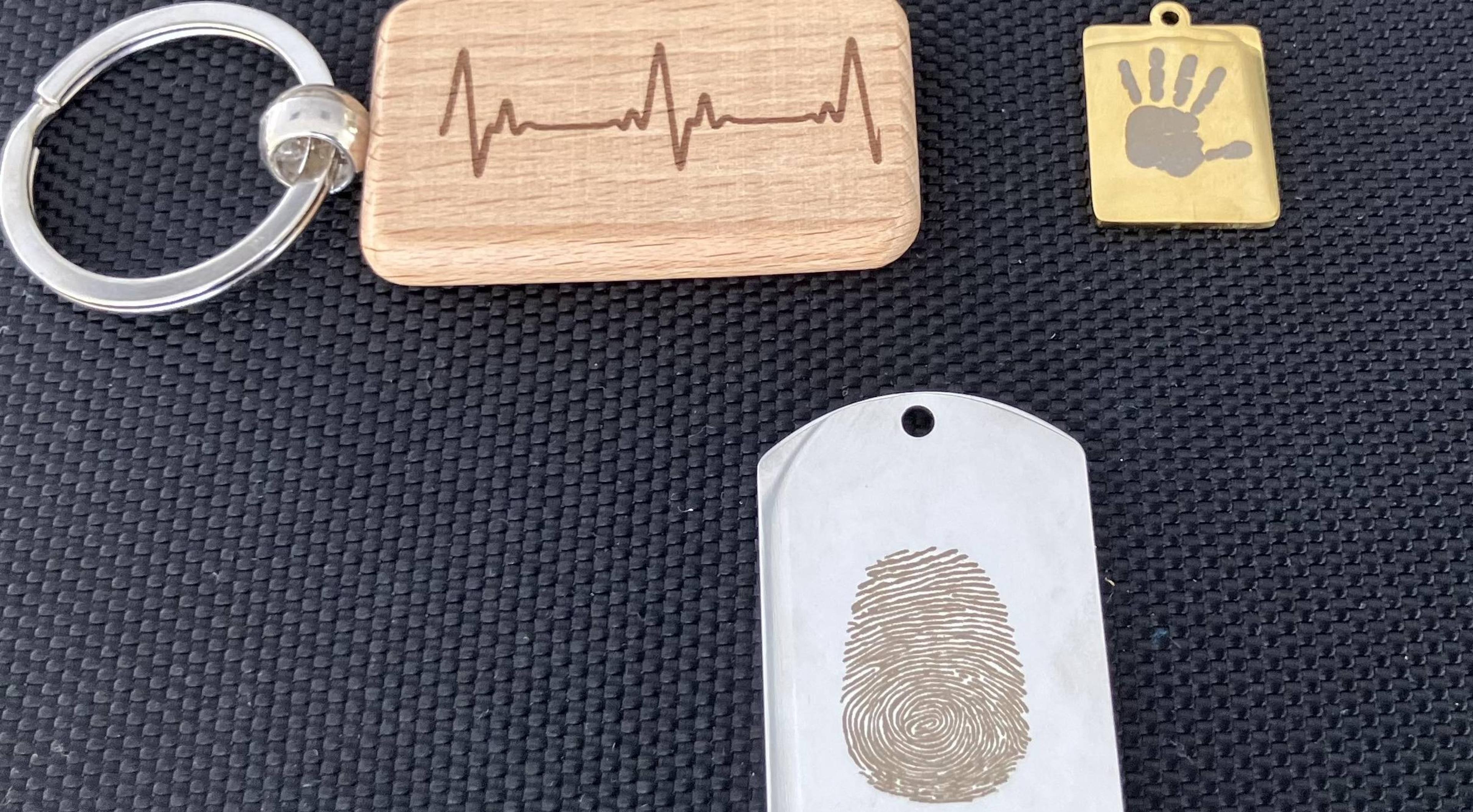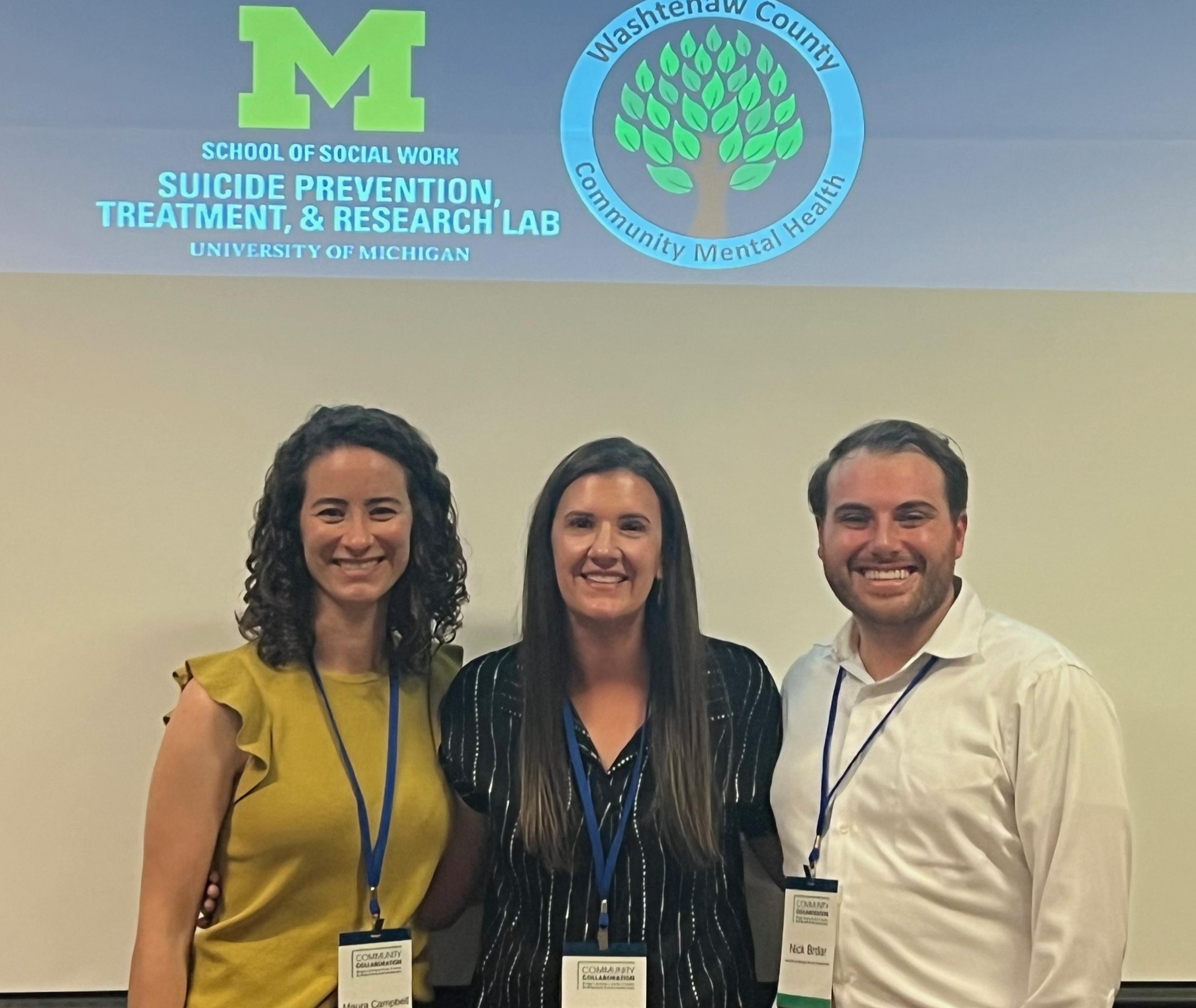Southeast Michigan Organizations Providing Medication-Assisted Treatment, Reentry Services to At-Risk Individuals

Jake Newby
| 6 min read
Jake Newby is a brand journalist for Blue Cross Blue Shield of Michigan.
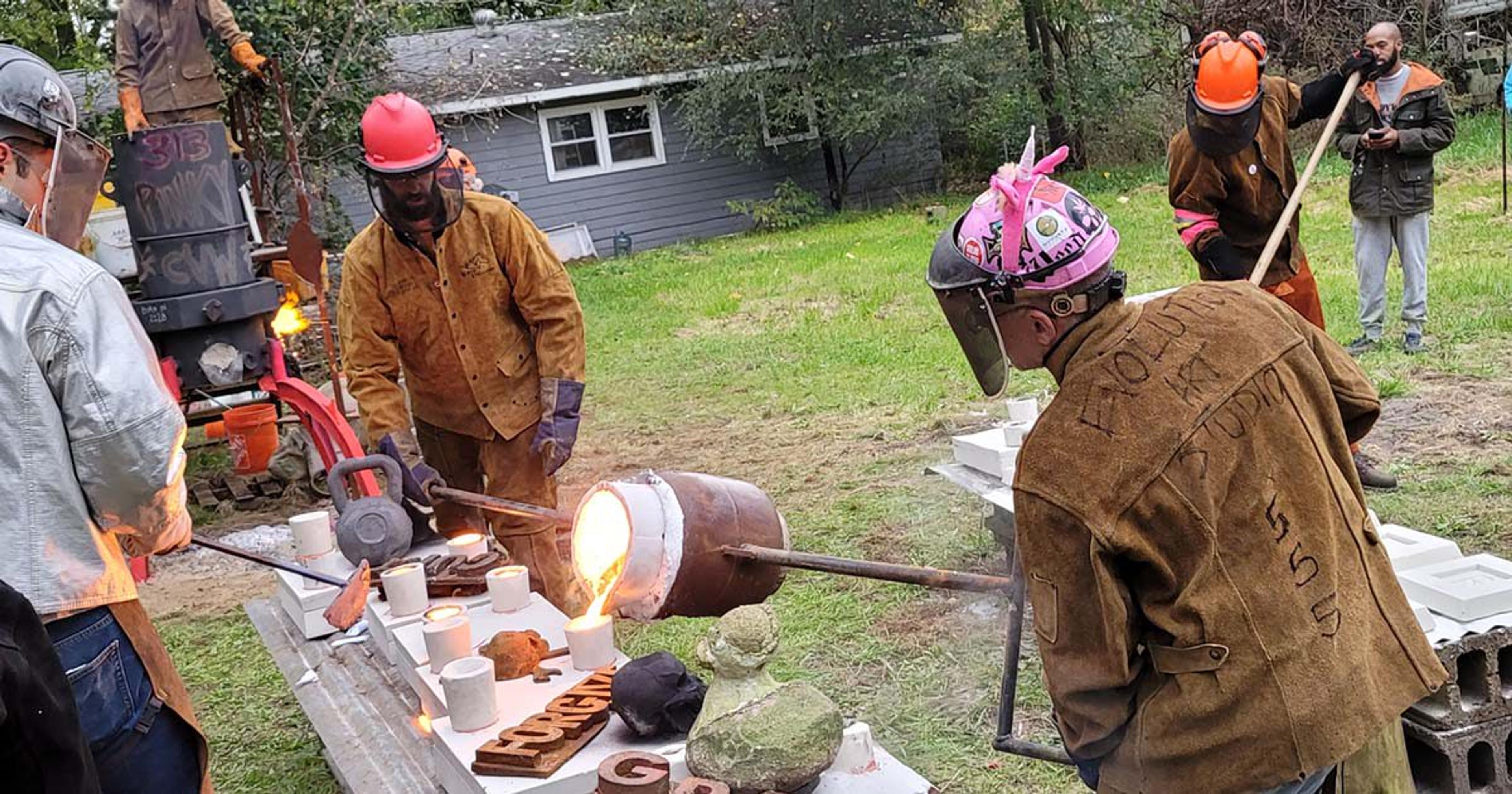
When an organization provides specialized care and resources to vulnerable individuals who otherwise wouldn’t know where to turn, they are building bridges to stable health. They are providing a safety net for at-risk individuals to acquire the kind of treatment they couldn’t get elsewhere.
The Blue Cross Blue Shield of Michigan (BCBSM) Foundation teamed up with multiple organizations who are dedicated to build those bridges for people who live in some of Michigan’s most populated counties.
Ypsilanti-based Youth Justice Fund (YJF) and Detroit-based Authority Health each received $40,000 Building Health Care Bridges to Stable Health grants between 2021 and 2022. Each organization used those funds to provide specialized services to justice-impacted individuals (anyone that has been directly or indirectly affected by the justice system) or those attempting to overcome substance use disorder (SUD).
“The Foundation is always looking to partner with safety-net organizations that serve those who are uninsured, underinsured, or vulnerable. We recognize how important it is that these individuals receive the kind of personalized care they need to readjust to their communities after going through rough patches in their lives,” said Myra Tetteh, Senior Program Officer of the BCBSM Foundation. “The organizations that received grants over the last year-plus align tremendously well with that mission.”
Youth Justice Fund helps justice-involved individuals readjust after incarceration
The primary mission of the Youth Justice Fund, according to executive director Aaron Kinzel, is to provide trauma-informed care and reentry services for youth that went into the adult justice system and came out years later struggling to reintegrate into society.
“A lot of these juveniles were given life without parole because of their serious violations as teenagers,” Kinzel said. “Because of U.S. Supreme Court law, they were resentenced. And then as they were coming home to the community, they really weren’t given assistance. The idea behind the Youth Justice Fund is to fill that gap in reentry services.”
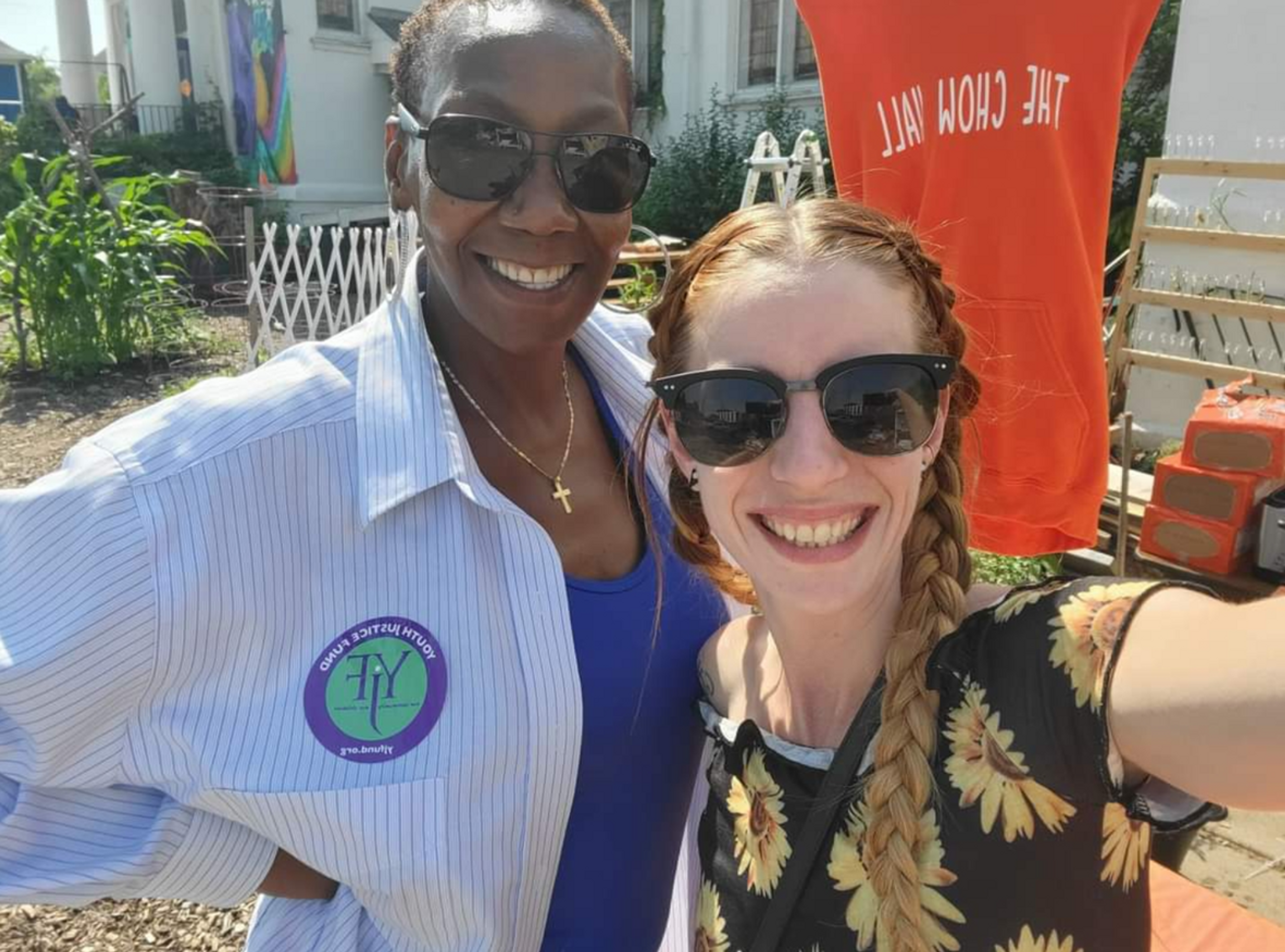
Kinzel said the YJF targets individuals who never went to prom, never held a job, and don’t know how to balance a checkbook. The YJF, which services counties in southeast Michigan, helps clients get their hands on important documents like birth certificates, social security cards, and state identifications. It also connects them with clinicians for physical and mental health care services and helps those interested restart or pursue their education.
With a boost from the BCBSM Foundation, Kinzel said YJF created some new public-health oriented programs.
“We brought in experts like occupational therapy specialists, for example, who sat down with clients either virtually or in-person, talking about ways they could look at health care and assist them with their daily activities,” Kinzel explained. “A lot of people coming out of prison have a lot of different issues living with a lack of nutritional food and good care and come out with conditions like diabetes and hypertension.”
Kinzel said a lot of the YJF’s clients are so used to subpar health care that they’re not familiar with all the different pathways to health care that are available to them. One important area BCBSM Foundation funds were allocated to was transportation; getting people to and from medical appointments. This includes bus passes and gas cards.
“This grant has been great to bring in experts to talk to them about healthy eating habits and going to get checkups,” he said. “In the last year we took it a lot further than just getting people Medicaid insurance this time. We actually provided gift cards and stipends for people to see a primary care physician, get some annual checkups, maybe get some blood work, to consider the COVID vaccine or other vaccines they may need. I think it’s been a great way to get access to this population.”
Since funneling BCBSM Foundation grant funds into its project, Kinzel estimates that the YJF has serviced at least 38 individuals. He hopes to bump that number up to 50 by the spring of 2023.
Authority Health takes medication-assisted treatment (MAT) to new heights in 2022
Authority Health dedicated its $40,000 BCBSM Foundation grant to the Popoff Family Health Center, one of three medical practices Authority Health operates in the metro Detroit area.
SUD treatment on Detroit’s eastside – where Popoff is located – is always a top priority for Authority Health. Through the grant, Popoff provided MAT to patients referred from prominent Detroit-area hospitals, as well as the 36th District Drug Treatment Court. The clinic also strived to provide individualized care and education on overdose and Naloxone distribution, among other services.
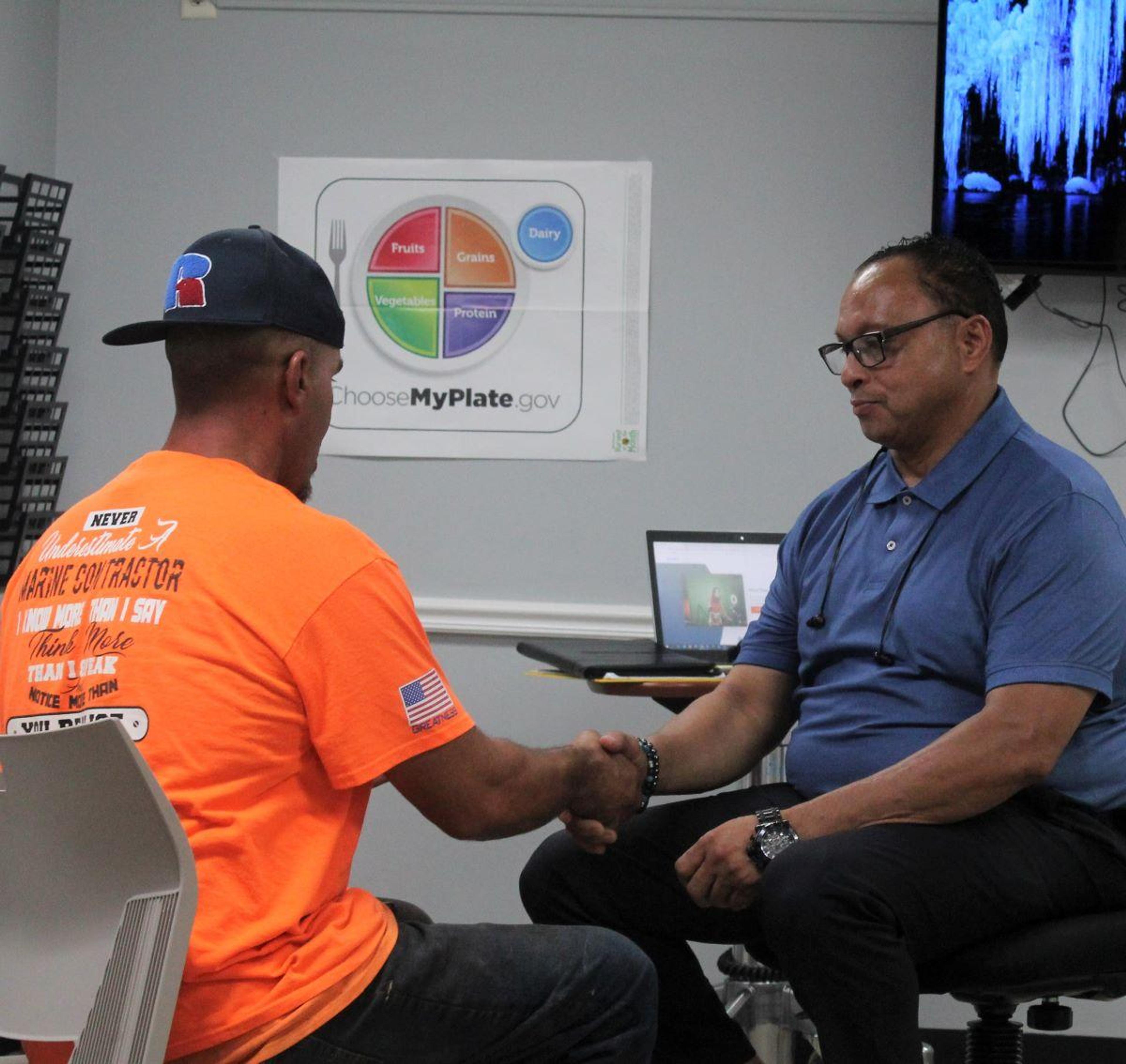
“With the funding, we were able to hire a peer recovery coach who assisted with intake and follow-up with peer counseling support meetings,” said Harolyn Nimmo, Director of Programs and Quality of Authority Health. “We found that it has enhanced our program tremendously. Especially as it relates to reducing our loss to follow-up.”
Popoff Peer Recovery Coach Keith Graham believes the key ingredient in leading patients toward recovery is “not by being judgmental or critical, but rather by embracing them where they are.”
Nimmo noted that after hiring the peer support coach more than a year ago, they expanded their program from 14 patients in 2021 to 77 patients by the fall of 2022. She also mentioned that 36th District refers 8 to 10 patients to the MAT program monthly.
In addition to MAT, here are Popoff Clinic’s other areas of focus that were bolstered by BCBSM Foundation funds:
- Driver’s license assistance
- Marriage certificate assistance
- Food and clothing assistance
- Housing Assistance
- Linkage to primary care medication assistance
“The peer group sessions have been a beneficial component of our recovery work, it’s been such a big help to keep folks engaged and reduce loss to follow-up,” Nimmo said. “That was a major issue, someone would have their initial intake and they wouldn’t come in again. But with (the peer recovery coach) serving as a coordinator, they’re following up, they’re checking in, they’re having conversations with them and addressing issues impacting their lives, like homelessness and whatever challenges they’re dealing with. We’re keeping patients in the program longer to support them through the recovery process.”
By recognizing the unique challenges people face due to health inequity and systemic barriers holding them back from getting the proper care and support they need, the approach taken by Youth Justice and Authority Health is essential to evening the playing field. By providing resources with transportation to medical appointments, obtaining a driver’s license or medical coverage, etc. there are direct connections to reducing the risk of unmet health care needs and adverse impacts of mental, physical, and behavioral health and general wellbeing.
Funding partners for the Building Health Care Bridges to Stable Health grants included The Children’s Foundation and the Ethel and James Flinn Foundation. Learn more about grants awarded and the application process at bcbsm.com/foundation.
Photo credit: Authority Healthy and Youth Justice Fund




